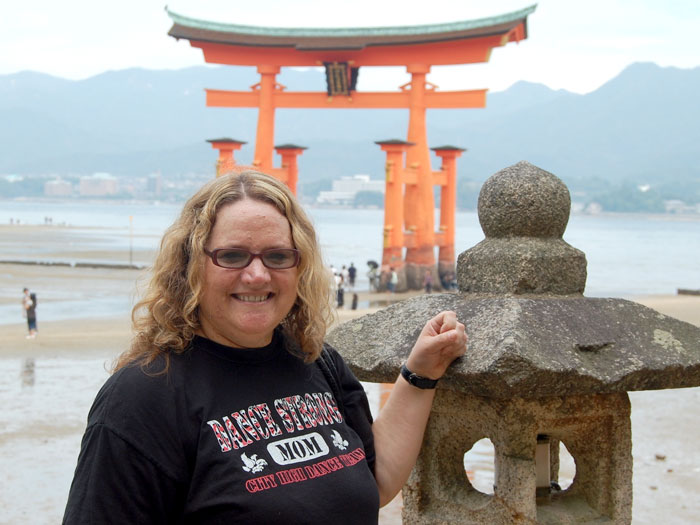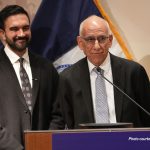Barbara Clark, Assistant Director at the College of Staten Island’s Center for International Service, had a rare opportunity to hone her understanding of Japanese culture and its entire educational system, thanks to her selection as a participant in a three-week Fulbright Program for International Education Administrators (IEA) that she attended in Tokyo, Kyoto, and Hiroshima last month. The IEA program is sponsored by The Japan-United States Educational Commission.
“I feel very honored that I was selected for this once-in-a-lifetime opportunity,” Clark says, explaining that she was one of six people nationwide selected for the 2009 IEA program. “While most people think of the Fulbright program as primarily serving faculty and graduate students conducting research abroad, there are also a few specialized programs designed specifically for international education administrators.”
As for the program, Clark states its goal was “to immerse us in all of the aspects of Japanese educational system and the culture so that we can gain a better understanding of Japanese students, scholars, and educational institutions in order to further relations between the two countries.
“Immersed” is a fitting word to describe her experience, as Clark reports that “it was a very busy, scheduled, and extremely organized program, unlike anything I’ve ever experienced in my life…We started with a pre-departure orientation in the United States, a large amount of preparatory required reading prior to the trip, followed by a post-arrival orientation when we arrived in Japan and meetings with the Ministry of Education; Culture, Sports, Science, and Technology (MEXT); and with the Japanese governmental organization, Japan Student Services Organization (JASSO). Then we had meetings and visits with all types of educational institutions, including elementary and secondary schools, private and public colleges and universities, vocational schools, and “cram” schools. We saw every kind of school—specialized vocational schools, women’s college’s, electronic colleges….” There was also a cultural component that was integrated into the overall program, as Clark was able to enjoy museums, major cultural sites, experience Japanese Kabuki theater, participate in a tea ceremony, attend a baseball game, sing Karaoke the “authentic” way, and she also even took a Japanese cooking class in a private home.
Although she says that she is still processing the massive amount of information that she gained on the trip, Clark notes that “it has expanded my own personal knowledge of the culture of Japan, which, of course, is of tremendous benefit to my understanding of Japanese students and scholars here at CSI, but also for our students, staff, and faculty who may wish to go to Japan,” pointing out that CSI has exchange agreements with several Japanese educational institutions.
In addition, Clark says that she will be conducting presentations to the College community regarding her trip, and she has learned some great tips for improving student services programming from her Japanese counterparts, which she intends to pass on to her colleagues at CSI.
The Center for International Service, established in 1976, promotes the internationalization of academic life and provides programs and services to foster an awareness of the interdependence of nations, the value of diversity, and the importance of international understanding. The Center offers foreign student and scholar services, study abroad programs, exchange programs, and the English Language Institute. For more information, call the Center at 718.982.2100.














